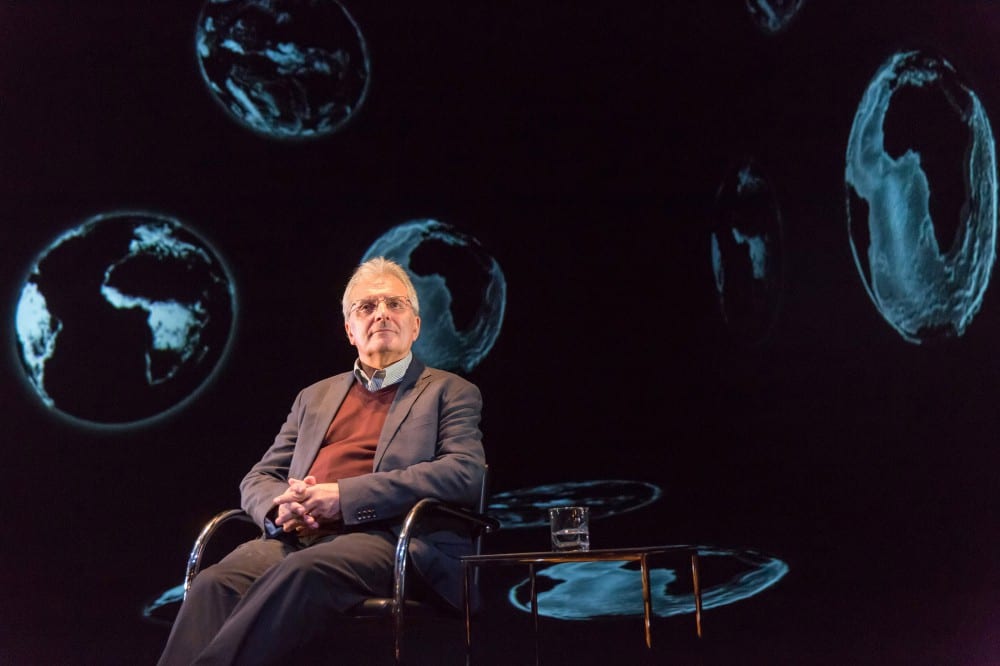At first Luke Halls’ cinematic video, which plays in the background of 2071 and features images borrowed from NASA, appears to set the performance up as something it’s not. For this is not theatre. The auditorium of the Royal Court’s Jerwood Theatre Downstairs becomes a lecture hall for UCL’s Chris Rapley (Chair of the London Climate Change Partnership), who speaks for 75 minutes on climate change. The stage is stripped of all dramatic purpose and set up exactly like a lecture would be – just Chris, a chair and a glass of water. The swooping shots of the earth’s surface feel painfully out of place as they play out behind the scholarly-looking man, sipping at the water a little nervously and clearing his throat. Even when he announces “We have entered a new epoch” there is not a shred of drama in sight.
Later, however, the video becomes really helpful infographics which help to get the message of the ‘play’ across. The last time I learnt this much about science was in a GCSE Physics classroom. Did you know that the ocean absorbs just as much CO2 as trees? Or that the global water level raises by 3.3 millimetres per year? Or that the ruins of Roman harbours can help us to understand global warming?
In the year 2071, Rapley’s eldest granddaughter will be the age that he is now and, while he sternly warns us about the real dangers of human-inflicted climate change, there’s a touching and sincere hope for the future to be found towards the end of his lecture. For the most part, however, Rapley throws out an overwhelming amount of facts, figures, dates and mind-bogglingly long words. It’s incredibly, and painstakingly, scientifically accurate in places. There is no humour or variation in the delivery of such a serious subject that might have lightened the piece and it feels a bit stuffy and static. Rapley sits down for the duration, reading from an autocue and doing what he normally does in his capacity as an academic lecturer, making one wonder quite why director Katie Mitchell needed both an associate director and an assistant director to create her ‘play’.
“Science,” Rapley says, towards the end of his talk, “can inform but it cannot arbitrate.” Nor can it entertain when presented like this and therein lies the problem. The content of 2071 is powerful and provocative stuff but it is in completely the wrong format for a theatre audience. Here’s a telling statistic for you: around 80% of the school group sitting in the row behind me dozed off, and there were a couple of nodding heads scattered through the rest of the stalls too.
Perhaps 2071 is a little misjudged but the desperate need to air these words, these critical issues, is not. The lecture forced me out of my comfortable ignorance about climate change and so, in a sense, it is vital viewing. Just don’t go expecting a play.

